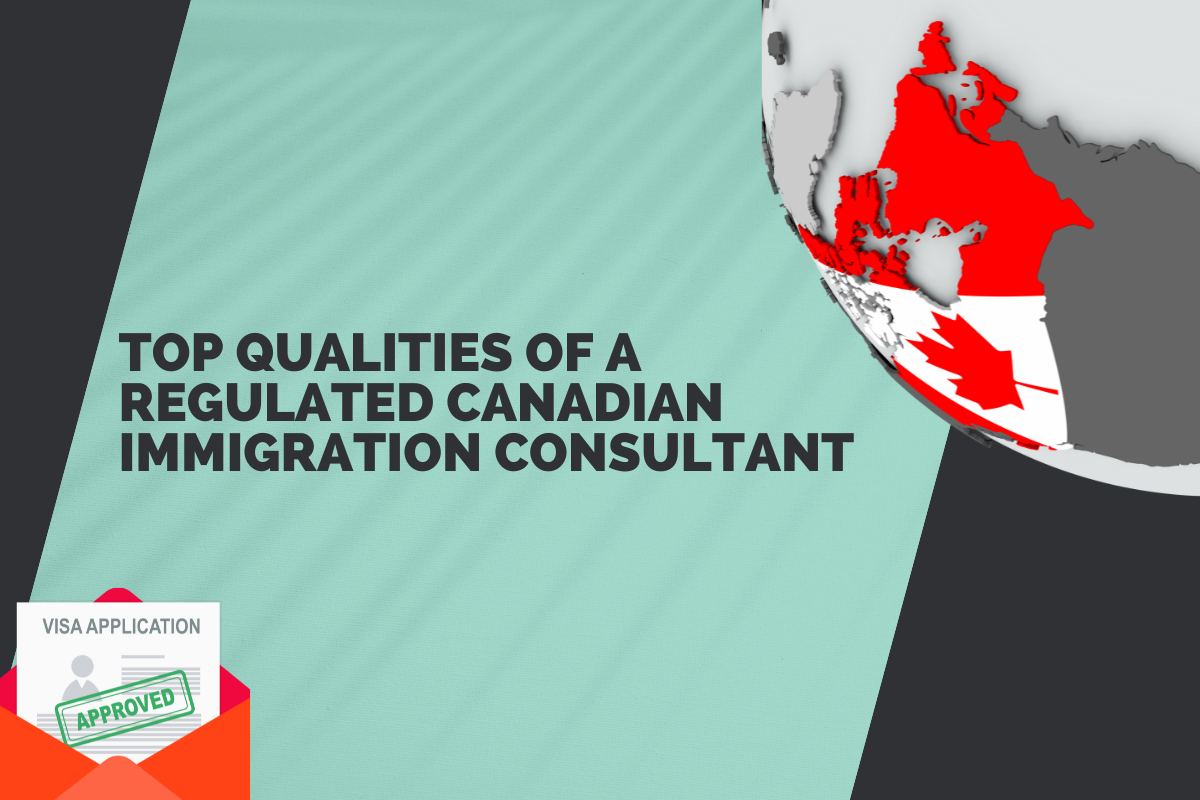Moving to a new country is a huge deal, right? After all, it's a big, life-changing decision. You can't afford to mess it up, especially when your whole future hangs in the balance. That's why having a Regulated Canadian Immigration Consultant (RCIC) on your team right from the get-go is super crucial. So, let's figure out what makes a top-notch RCIC.
Who Is a Regulated Canadian Immigration Consultant?
An RCIC is a licensed immigration consultant or representative recognized by the College of Immigration and Citizenship Consultants (CICC). These certified professionals handle tasks like representing you, assessing your case, and submitting your PR application in Canada.
What Does an RCIC Do?
A Regulated Canadian Immigration Consultant is responsible for managing all aspects of the visa and immigration procedures. Their tasks include:
- Advising clients on their legal rights and all matters concerning Canadian immigration and citizenship laws
- Assisting clients in obtaining visas and other necessary documentation for both temporary stays and permanent residency
- Ensuring timely completion and submission of applications by clients
- Verifying that clients provide accurate and current information
- Researching legal precedents
- Gathering evidence to support applicants' claims regarding their home countries
- Determining the next course of action for clients if their application is rejected
- Assisting human resources personnel in understanding immigration regulations pertaining to their organization's foreign employees
How to Become an RCIC?
Let's break down how one can become an immigration consultant.
Mandatory Qualifications of an RCIC
Bachelor's Degree
Aspiring consultants need to have the following:
- A bachelor's degree from an accredited university
- At least around a B average grade (that's roughly 70%.)
- A good reference from one of their instructors
- A Statement of Interest about why they want to pursue a consulting career for business immigration in Canada
What aspiring consultants major in isn't important since they’ll be pursuing a diploma later, but something like law or public policy could set them up nicely.
Graduate Diploma
After getting a bachelor's degree, aspiring consultants must pursue the following online graduate diploma programs, the only ones accepted to become a legit RCIC:
- Graduate Diploma in Immigration and Citizenship Law from Queen’s University (English)
- E.S.S. en réglementation canadienne et québécoise de l’immigration from Université de Montréal (French)
Expect to spend a good chunk of your time on these — about 40 to 48 hours per week. That's like having a full-time job alongside your studies.
Entry-to-Practice Exam
Once you've earned the graduate diploma, it's time for the Entry-to-Practice Exam by CICC. A quick heads-up, though: only Canadian citizens and permanent residents can take this exam. So, if you're an international student, make sure you've got your permanent resident status sorted out before you reach this stage.
CICC conducts this three-hour, open-book exam a few times throughout the year. It consists of around 140 multiple-choice questions, each based on a hypothetical scenario about business immigration in Canada, to assess how you'd handle it as a consultant.
8 Key Traits to Look for in a Regulated Canadian Immigration Consultant
This year, I met 2 international students in Canada from Nigeria who unknowingly were given fake admission letters.
— ‘Tunde Omotoye (@TundeTASH) December 21, 2023
Thankfully, IRCC has launched a way to verify Acceptance Letters online.
If an agent gives you a letter, just go to: https://t.co/C5vWS1o8ap to verify it.
If you're picking out a regulated Canadian immigration consultant, you must keep an eye out for some key traits to make sure you're dealing with someone competent and skilled. Here are a few things to look for:
1. Regulation and Licensing
Anyone living in Canada who isn’t a licensed consultant but charging you money for consultation/representation for any immigration related matter is committing a crime.
— ‘Tunde Omotoye (@TundeTASH) November 25, 2021
Engage with only lawyers/licensed consultants of CICC (College of Immigration & Citizenship Consultants). pic.twitter.com/MF6fliKINC
You want someone who's legit and plays by the rules, right? So, make sure the consultant is in good standing with the CCIC or a lawyer who's in good standing with a Canadian provincial or territorial law society.
2. Experience and Expertise
You want someone who's been there, done that; they should have got their clients visas and residency permits. So, look for consultants with a commendable track record. Experience counts, especially when there are tricky cases or specialized immigration categories.
3. Up-to-Date Knowledge
A top-notch consultant needs to be aware of all the latest immigration laws and policies. That means they're constantly brushing up on their knowledge to give you spot-on advice when you need it. Particularly, they should be on top of things like:
- The Immigration and Refugee Protection Act
- The Criminal Code of Canada
- And all the other nitty-gritty immigration-related concepts and events
4. Clear Communication Skills
Make sure the consultant is able to break down complex immigration processes for you in plain language and be there to answer all your questions. They need to understand where you're coming from and figure out the best way to talk you through the process. Plus, they should keep you looped in every step of the way.
5. Proficiency in Second Languages
An RCIC must know how to deal with clients from all over the map. They must be proficient in English, but it's even better if they can chat in your language to make you feel understood throughout the process. If you can't speak much English, having a bilingual or even trilingual consultant is a big plus.
6. Ethical Conduct
Beware of false promises from unauthorized immigration consultants popularly known as SOJ. While they may offer enticing guarantees to bring you to Canada, it is crucial to avoid any actions that could result in a five-year ban.
— Olumuyiwa Igbalajobi, Ph.D (@olumuyiwaayo) May 22, 2023
Be cautious and ensure you follow the proper…
Go for someone honest and practices professionalism. Your consultant’s main focus should be looking out for your best interests and giving honest advice every time. They should not make wild promises about how “great” things will turn out.
7. Attention to Detail
When it comes to immigration Canada applications, every little detail counts. That's why you need a consultant who's meticulous when checking your documents and making your application perfect. After all, you don't want any slip-ups or omissions that could slow down the process or put your case at risk.
8. Fee Transparency
What's even more crucial than finding a consultant who gives you value for your money is making sure they're upfront about their fees from the get-go. Watch out for consultants who try to squeeze huge amounts of money from you or tie their fees to the success of your application. Go for someone who lays out their pricing crystal clear.
Conclusion
Choosing a Regulated Canadian Immigration Consultant demands expertise, integrity, and empathy. Look for a consultant who's well-versed in Canadian immigration laws, upholds professional ethics, and has a successful track record. Effective communication, multilingual proficiency, and transparent fees are crucial.
With these qualities, you can go through Canadian immigration confidently, knowing you have a trusted RCIC guiding you at every step.





Leave a reply